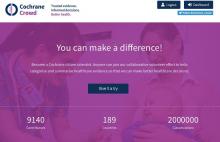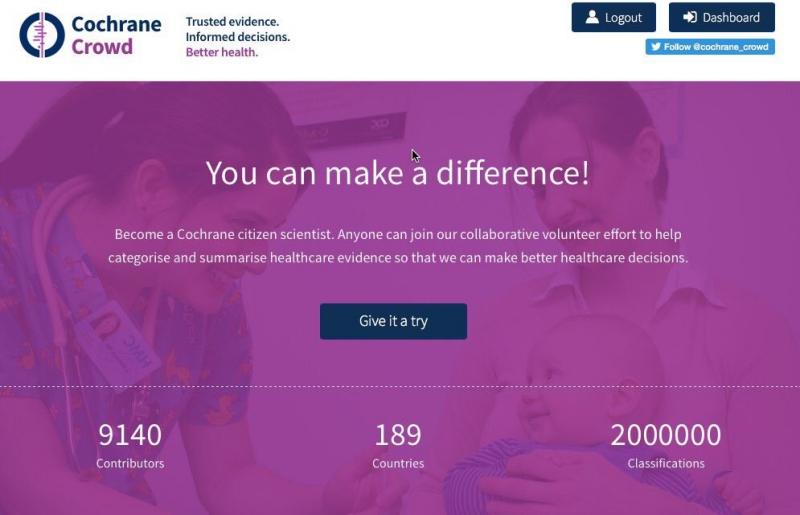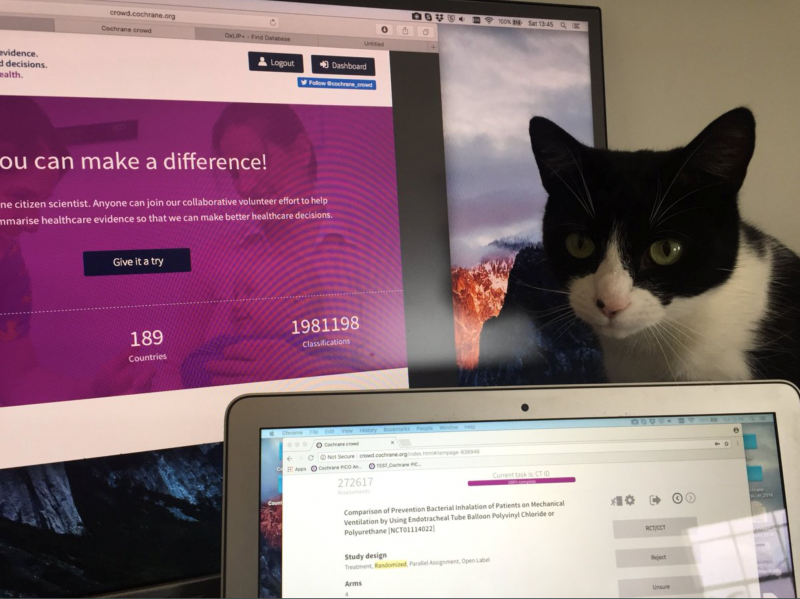Cochrane Malaysia is pleased to announce the list of names of recipients of a certificate of recognition for Malay translations completed between January and December 2017
The year 2017, 2 years after its launch in 2015, was very meaningful for Cochrane Malay Translation. In 2017, we reached a milestone by publishing the 1000th Malay PLS which marked the acceleration in our production rate. Our Malay pages in Cochrane.org received over 5000 views in December 2017, which was 4 times that in January 2016. These made us one of the fastest growing Cochrane translation initiatives.
These would have been impossible without the generous help of our translators and editors who are working on voluntary basis. Our volunteers are all healthcare students or practitioners and come from over 10 institutions in Malaysia and abroad.
To thank volunteers for their work, we issue certificates of recognition to reward translators and editors on an annual basis. This is the second year of the award. In 2016, we had the modest number of just five recipients. This year we have a more glamorous number of 19 recipients. Four of the five recipients from 2016 again receive the certificate of recognition for 2017.
What are the criteria for receiving a certificate?
There are 3 categories of recognition with editors and translators receiving separate recognition:
- Bronze award for completing or editing 20 translations in a year
- Silver award for completing or editing 35 translations in a year
- Gold award for completing or editing 50 translations in a year
Who are the recipients of certificates for 2017?
They come from various medical and health institutions and universities in Malaysia and abroad. They are students, nurses, medical experts and other healthcare professionals who have generously contributed their precious time for this work. The translators and editors shared their thoughts on getting involved with Malay translation.
“Our translators thank us for the opportunity but we truly want to thank our translators!”
Gold translators
1. Wong Chun Hoong, Pharmacy graduate, International Medical University (469PLS)
“It is gratifying to translate Plain Language Summary as I can learn much recent medical information. I hope to read more and share with those concerned about their own health in a language that can easily be comprehended”.

2. Khaw Loke Tim, Immunologist-Division of Pathology, International Medical University (73PLS)
“I just started translating in 2017, as I believe knowledge should transcend any barriers, especially language”.

3. Professor Dr Noorliza Mastura Ismail, Professor of Dentistry at Melaka Manipal Medical College (73 PLS)
She describes Cochrane translation work as “invigorating.”

4. Noor Salwah S Omar, Science Officer at the Research & Innovation Unit, School of Dental Sciences, USM (55 PLS)
“I've been a translator since a few years back but only actively involved recently. I do it because I would like the Malay community who cannot converse or read English to be able to share the current medical knowledge related to the treatment of various diseases. "Sharing is Caring". Cheers to everyone”.

5. Ng Chia Shyn, Pharmacy student, International Medical University (50 PLS)
“I joined this translation project because I want to develop a habit of lifelong learning and also to improve my proficiency in Bahasa Malaysia. As a future healthcare professional, I want to help in the spreading of health-related information and knowledge to the public."

Bronze translators
1. Assoc Prof Irfan Mohamad, Department of Otorhinolaryngology-Head & Neck Surgery,Universiti Sains Malaysia (32 PLS)
“I have been involved in Cochrane translation since early 2017. Since then, I have translated more than 20 titles , with the aim to help to disseminate knowledge among Malay-speaking groups. Clinically, I underwent training in Otorhinolaryngology-Head & Neck Surgery field and the articles translated are many from the specialty-related field”.

2. Teoh Ru Jian, Jonathan, Medical graduate, Penang Medical College
“I have been a Cochrane translator since being a medical student in Penang Medical College (PMC). Currently I am pursuing further studies specifically on systematic review and meta-analysis. Thank you for the support from PMC throughout these years!”.

3. Julie Yeo Hsiao Hui, Medical student, Taylor's University, Malaysia (24 PLS)
“I enjoyed doing the translation and it provided me opportunities to learn”.

4. Lee Pei Yee, Pharmacy student, School of Pharmacy, International Medical University (23 PLS)
“Its my honour to join as a volunteer translator for Cochrane because it is well known in providing reliable evidence based information to people all over the world. I hope to share the information in Bahasa Malaysia so that the Malay speaking community can access to the data easily and thus improve our healthcare system together”.

5. James Tan Wing, Final-year student at Melaka Manipal Medical College (21 PLS)
“I am interested in research. Following the recommendation of my Dean, Dr Adinegara Lutfi Abas, I have involved myself in Cochrane translations to improve my resume and help people in this region appreciate high-quality scientific evidence. The initial experience was different from what I've been used to, but after translating a few articles, things did get easier”.

Gold editors
1. Assoc Prof Tuan Hairulnizam , Department of Emergency Medicine, School of Medical Sciences, University Sains Malaysia (320 PLS)
“I teach Emergency Medicine at School of Medical Science, Universiti Sains Malaysia. I find great gratification in translating the Plain Language Summary since i know this way a lot of people can benefit from scientific researches around the world”.

2. Professor Dr Noorliza Mastura Ismail, Professor of Dentistry, Melaka Manipal Medical College (289 PLS)
Professor Noorliza is also a recipient of Gold translator award. She shared her thoughts in the Gold translator section of this announcement.
3. Dr. Tan May Loong, Paediatrician and Senior Lecturer, Penang Medical College (55 PLS)
“I have been doing editing of translations for over 2 years - it started with just plain language summaries but now expanded to podcasts, featured reviews and blogshots. I am very happy to see Cochrane evidence in Malay where it can reach so many of my people who do not read English.”

4. Associate Professor Dr. Norhayati Mohd Noor Public Health Physician (Family Health), School of Medical Sciences, Universiti Sains Malaysia (52 PLS)
“I teach family health, medical biostatistics and research methodology. I handle qualitative, quantitative and mixed methods research. My particular interests include maternal and perinatal health, adolescent health and traditional and complementary medicine”.

5. Dr. Mohd. Shaharudin Shah Che Hamzah, Department of Emergency Medicine, School of Medical Sciences, University Sains Malaysia (50PLS)
“Hi, I started being involved with translating and editoring a couple of years ago. I am a lecturer in USM and majoring in pre hospital care and disaster... my interest is in public engagement especially in relation of disaster management”.

Bronze editors
1. Dr Rosnani Zakaria, Department of Family Medicine, Universiti Sains Malaysia (33 PLS)
“Translation of information and advice from Malay to English and vice versa is an everyday routine for us , Family Medicine Specialist and most of other health professionals, so to do it in writing is another way of sharing knowledge with the community and I enjoyed doing it. Thank you Cochrane for the opportunity given.”

2. Dr Sharifah Halimah Jaafar Consultant Obstetrician and Gynaecologist, Regency Specialist Hospital ,Johor. (31PLS)
“I am a Consultant Obstetrician and Gynaecologist, currently working in Regency Specialist Hospital in Johor. I am also a Cochrane author in Pregnancy & Childbirth Group. I started being editor after being introduced by Prof Jackie Ho to Dr Teguh”.

3. Prof Lai Nai Ming, Professor of Paediatrics, Faculty of Health and Medical Sciences,Taylor's University, Malaysia (28 PLS)
“I have been involved in the Cochrane Malay Translation Initiative as an editor, having editted over 30 Cochrane plain language summaries and 25,500 words since 2013. It gives me enourmous pleasure and sense of purpose in editing the translation, as I witnessed the efforts of the translators in trying to make complicated terms and concepts clear to lay readers. It is exciting to be part of this very meaningful initiative in making Cochrane accessible by every person in the society in Malaysia”.

4. Chan Mei Wai, Family Physician, Department of Family Medicine, Penang Medical College (24 PLS)
“I've been an editor since a year ago. I enjoy the work and hope can continue contribute to it”.

5. Dr Ahmad Filza Ismail, Department of Communty Medicine, Universiti Sains Malaysia (22 PLS)
“I was introduced to Cochrane Malay translation project in 2016. As a medical graduate from a non-English speakingcountry, I enjoyed a lot doing the translation from English to Malay and vice-versa. Since I am a Public Health Specialist, reading and translating articles on epidemiology and preventive medicine at the same time adding new knowledge to me. Looking forward to contributing more in coming years.”

Congradulations and a warm thank you to all our translators!















